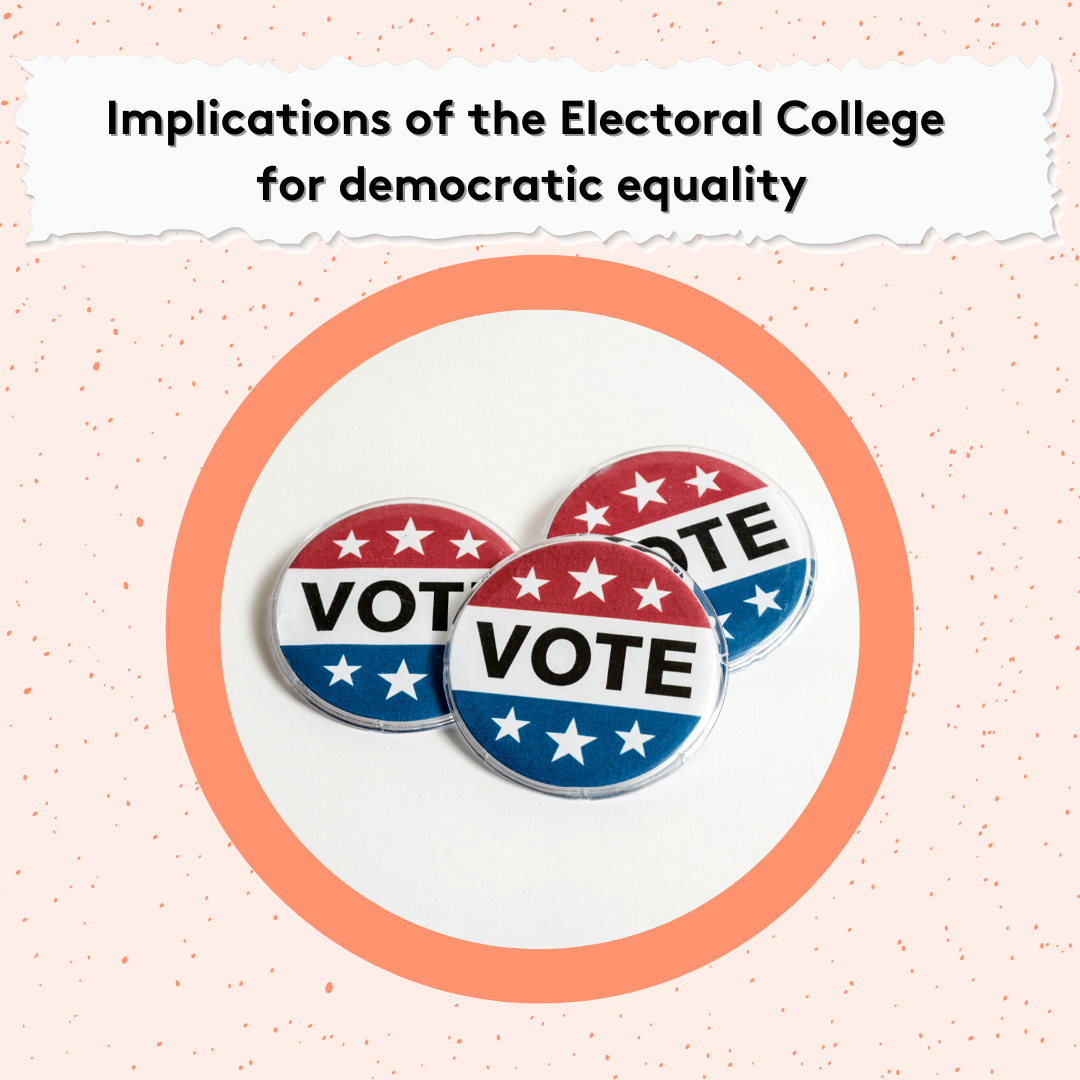 In my previous posts, I’ve described the rules of the Electoral College, the origins of these rules, and some limitations that EC rules present for universal democratic rights. I talked briefly about the worry that the EC disadvantages non-swing state voters and voters in urban areas. Critics also charge, more broadly, that the EC rules disadvantage Democrats relative to Republicans because Democrats are concentrated in urban areas. The two most recent instances where the popular vote winner lost the election – 2000 when Bush narrowly defeated Gore, and 2016 when Hillary Clinton lost the election despite winning the popular vote by 3 million votes – supports this assertion.
In my previous posts, I’ve described the rules of the Electoral College, the origins of these rules, and some limitations that EC rules present for universal democratic rights. I talked briefly about the worry that the EC disadvantages non-swing state voters and voters in urban areas. Critics also charge, more broadly, that the EC rules disadvantage Democrats relative to Republicans because Democrats are concentrated in urban areas. The two most recent instances where the popular vote winner lost the election – 2000 when Bush narrowly defeated Gore, and 2016 when Hillary Clinton lost the election despite winning the popular vote by 3 million votes – supports this assertion.
Racial and partisan biases of the EC
To better understand this argument, it is important to understand both the partisan and racial geography of the US. First, Democrats are more likely to live in urban areas, and are more racially diverse than Republicans. Republicans, on the other hand, are more likely to live in rural areas and are overwhelmingly white. These descriptive differences mean that EC rules do not impact Republicans and Democrats in the same way.
Under the EC, candidates have little incentive to appeal to urban voters in states that reliably vote for the Republican candidate. For example, in 2020, 60% of Tennessee voters voted for Donald Trump, while 37.5% voted for Joe Biden. However, in Nashville, Joe Biden won 64.5% of the vote, while Donald Trump won only 32.4%. Because the EC operates under a winner-take-all system, all eleven of Tennessee’s EC votes went for Trump, despite the fact that over 1 million Tennesseans living in urban areas voted for Biden. These voters’ preferences were largely ignored under the EC system.
The converse is true as well – in reliably Democratic states, rural voters’ preferences for the Republican candidate are functionally ignored in the EC accounting. However, there are far more voters in urban areas in reliably Republican states than the reverse.
These scenarios highlight the fact that urban Democrats, many of whom are Black and Latino, are disadvantaged by the current EC system. Hillary Clinton’s popular vote win but EC loss highlights how turning out voters in big cities, especially in partisan states, does not necessarily translate to victory under the EC rules.
Reweighting the system
Some argue that relying on a popular vote would give urban voters too much sway. But, as I mentioned in a previous post and others have pointed out, a small state bias is built into the EC by virtue of relying on congressional representation to determine EC votes. So, a popular vote does not overweight cities as much as it assigns a more proportionate weight to rural areas and smaller states.
Given that the EC was designed to protect the slaveholding minority’s interests and continues, to this day, to deprive many voters, especially Black and Latino, of equal voice, it is worth considering the benefits of alternative systems, including a national popular vote.
Gabrielle M. holds a PhD in Government and Social Policy and an MA in Government and Social Policy, both from Harvard University. Her tutoring specialities include History (high school, AP, and college levels), as well as Political Science & Government.
Check out related blog posts below!

Comments